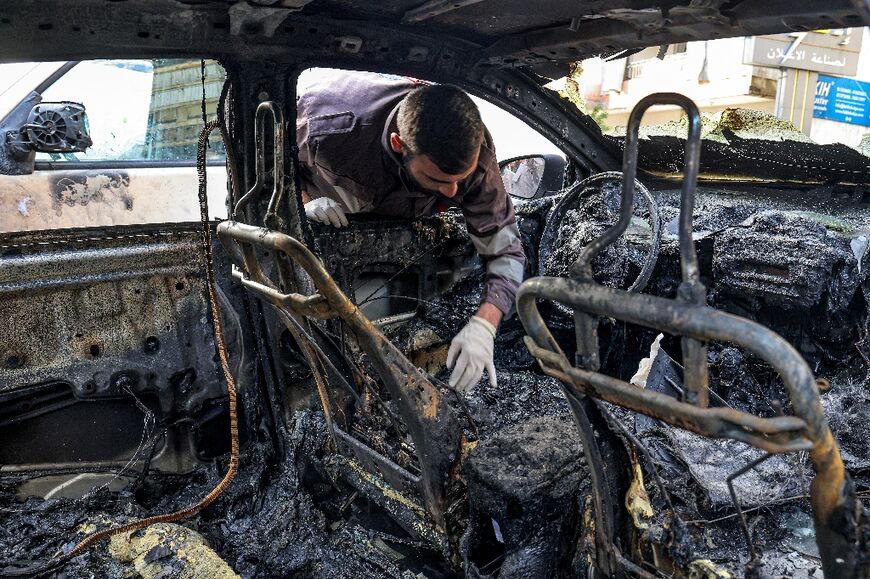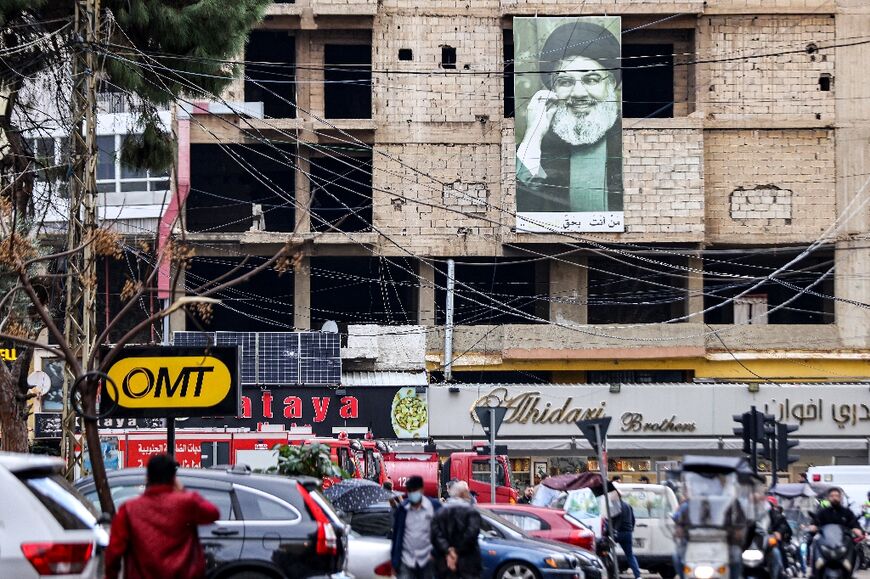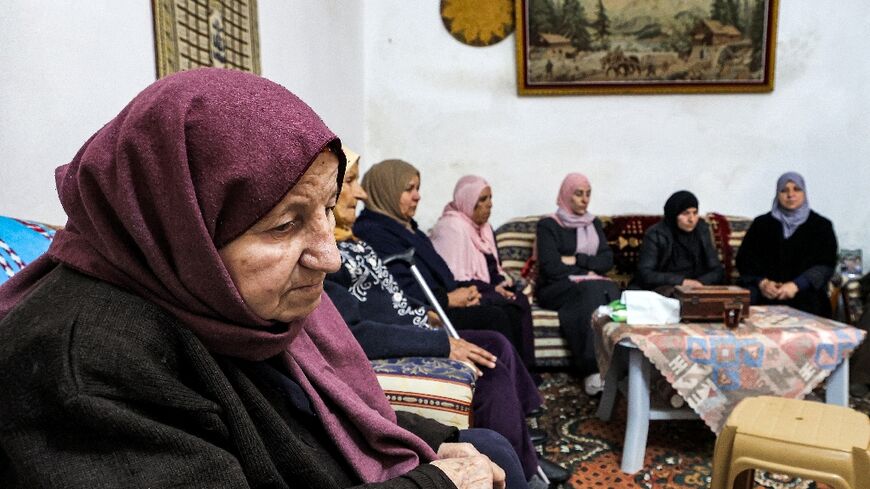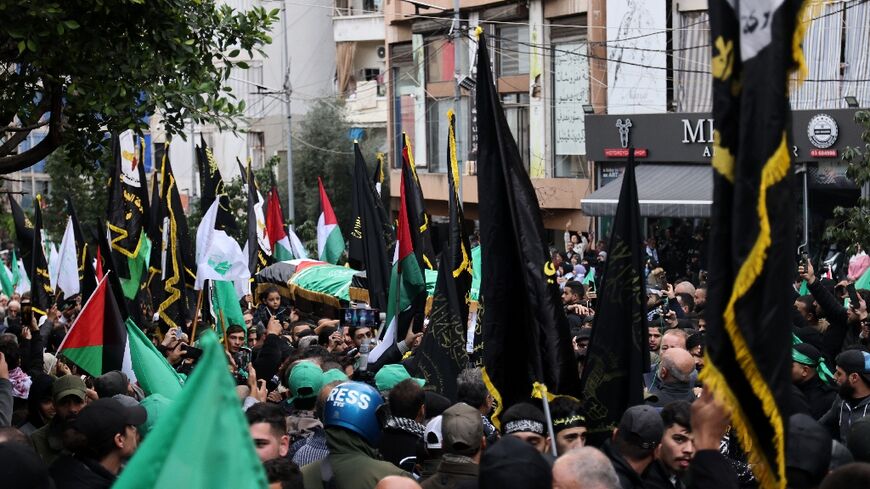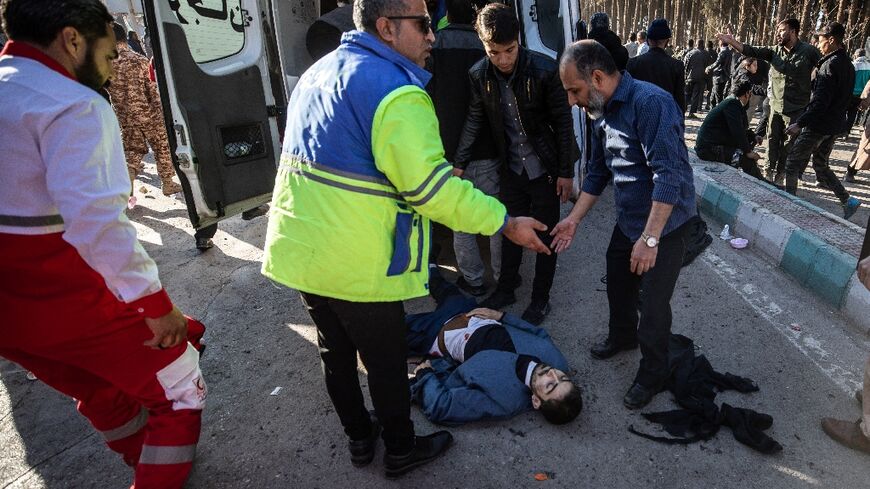'No one knew': south Beirut stunned after strike kills Hamas deputy

A large hole is gaping in a three-storey building and debris litters the street amid charred cars in south Beirut where a strike blamed on Israel killed the deputy leader of Palestinian militant group Hamas.
The day after loud blasts ripped through the district from the drone attack that killed Saleh al-Aruri, armed men of Hezbollah were standing guard in the mainly Shiite Muslim area that is their stronghold.
Local residents said they were surprised to learn that their busy street in the Lebanese capital housed the secretive Hamas bureau in a non-descript building next to a pharmacy and a sweets shop.
Israel has not claimed the deadly attack but Hamas, the group behind the October 7 attack that sparked the Gaza war, and Lebanese officials have no doubt it was Israel who killed Aruri and six Hamas operatives.
Beirut's southern suburbs have long been a stronghold of the Iran-backed Hezbollah armed group, but it is also an overcrowded residential area packed with civilians, shops and restaurants.
"No one knew that there was a Hamas office here," said Ahmed, 40, who works in the nearby sweets shop. "I heard three explosions, at first I thought it was thunder," he told AFP in disbelief.
Shopkeepers were sweeping glass shards off the road near the impact site on Hadi Nasrallah street, named after Hezbollah's leader Hassan Nasrallah's late son, who was killed in fighting with Israel in 1997.
The Lebanese army cordoned off the perimeter and Hezbollah militants dressed in black civilian clothing kept watch nearby.
"Three Israeli drone strikes targeted the building," said a Hezbollah official who requested anonymity citing security concerns.
- 'Expecting the worst' -
Rescuers affiliated with Hezbollah rummaged through the remains of cars damaged or charred by the strikes, in an empty lot facing the building.
"I was at the dentist's, a few meters away," said resident Mohammad Burji, 46, who lambasted Israel for striking "in the middle of a residential area".
Beirut's southern suburbs have "been caught in the past in a war of annihilation, just like Gaza," he said, referring to heavy bombing during the 2006 war between Hezbollah and Israel.
Aruri, one of Hamas's main military strategists, was the first senior official of the movement killed during the Gaza war, in the first strike on the Lebanese capital since hostilities began.
Israel has accused him of masterminding numerous attacks.
After spending nearly two decades in Israeli prisons, Aruri was freed in 2010 on the condition he went into exile.
Local police captain Ali Farran said residents who have lived through the 2006 war "are now expecting the worst", adding that the predominantly Shiite Muslim area is home to 800,000 people.
Several exiled Hamas leaders have found refuge in Lebanon, under the protection of their ally Hezbollah.
Hamas official Osama Hamdan holds near-daily press conferences in the southern suburbs, which have also housed Bahraini dissidents and Iran-backed Yemeni rebels.
- 'Serious assault' -
On Tuesday, Hezbollah warned that Aruri's killing in their stronghold was "a serious assault on Lebanon" that "will not go unanswered or unpunished".
Nasrallah was expected to give a highly anticipated television address later Wednesday.
The Gaza war started after the Hamas attack on Israel killed around 1,140 people, most of them civilians, according to an AFP tally based on official Israeli figures. The militants also took around 250 hostages.
Israel has launched a relentless military campaign in Gaza that has claimed over 22,000 lives, according to the territory's health ministry.
Amid the war, Israel and Hezbollah have traded near-daily cross border fire.
More than 160 people have been killed on the Lebanese side, most of them Hezbollah members but also more than 20 civilians including three journalists, according to an AFP tally.
On the Israeli side, at least five civilians and nine soldiers have been killed, according to figures from the military.
Israeli army spokesman Daniel Hagari, after Tuesday's attack, did not directly comment on Aruri's killing but said the military was "highly prepared for any scenario" in its aftermath.



